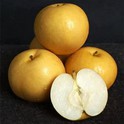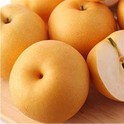Hey there! As a supplier of Kinsei Apples, I often get asked a bunch of questions about these delicious fruits. One of the most common queries is, "Can Kinsei Apples be stored in the refrigerator?" Well, let's dig into this topic and find out all about it.


First off, let me tell you a bit about Kinsei Apples. These apples are a real treat. They've got this perfect balance of sweetness and a nice, crisp texture. When you take a bite, it's like a little explosion of flavor in your mouth. They're not as well - known as some other varieties like the Sweet Yellow Apples or Tasty Fuji Apples, but they're definitely up there in terms of taste and quality.
Now, back to the main question: storing Kinsei Apples in the fridge. The short answer is yes, you can store Kinsei Apples in the refrigerator, and in fact, it's a pretty good idea in most cases. Apples are living things, and they continue to breathe and ripen even after they're picked. When you store them at room temperature, this ripening process happens faster. That means they'll get softer and might start to go bad sooner.
Refrigeration slows down this ripening process. The cool temperature in the fridge puts the apples in a sort of "slow - motion" mode. This helps to preserve their texture and flavor for a longer time. For Kinsei Apples, storing them in the fridge can extend their shelf life from a couple of weeks at room temperature to about 2 - 3 months. That's a huge difference!
However, there are a few things to keep in mind when storing Kinsei Apples in the fridge. First, make sure they're clean. Before you pop them in the fridge, give them a gentle rinse under cool water and dry them thoroughly. Any dirt or bacteria on the surface can speed up the spoilage process.
Another important thing is how you store them. It's best to keep them in a plastic bag or an air - tight container. This helps to maintain the humidity around the apples. Apples need a bit of humidity to prevent them from drying out, but too much moisture can lead to mold growth. If you use a plastic bag, you can poke a few small holes in it to allow for some air circulation.
Also, don't store your Kinsei Apples near strong - smelling foods. Apples are like little sponges when it comes to absorbing odors. So, if you store them next to onions or garlic in the fridge, they might end up tasting a bit funky.
Now, let's talk about when you shouldn't store Kinsei Apples in the fridge. If you plan to eat them within a few days, it might be okay to leave them at room temperature. They'll actually taste a bit sweeter and have a better aroma when they're at room temp. But if you're not going to eat them right away, the fridge is the way to go.
One more thing to note is that if you take Kinsei Apples out of the fridge and let them sit at room temperature for a while, they'll start to ripen again. So, if you want to keep them fresh for a special occasion, it's best to leave them in the fridge until you're ready to serve them.
As a supplier, I've seen firsthand the difference proper storage can make. When customers store their Kinsei Apples correctly, they're much happier with the quality and taste. And that's what it's all about for me. I want everyone to enjoy these amazing apples at their best.
If you're in the market for some top - notch Kinsei Apples, I'd love to talk to you. Whether you're a grocery store looking to stock up, a restaurant wanting to add a delicious apple dish to your menu, or just someone who loves apples and wants to buy in bulk, I'm here to help. We've got a great supply of fresh, high - quality Kinsei Apples, and I can work with you to find the best deal and delivery options.
So, if you're interested in purchasing Kinsei Apples, don't hesitate to reach out. Let's have a chat about how we can get these wonderful apples into your hands.
In conclusion, storing Kinsei Apples in the refrigerator is a great way to keep them fresh and delicious for longer. Just follow a few simple guidelines, and you'll be able to enjoy these Crunchy Apple - like treats for months.
References
- "The Science of Apples: Storage and Ripening." University of Agriculture Research Report.
- "Fruit Storage Guide." Home and Garden Bulletin by the Department of Horticulture.





